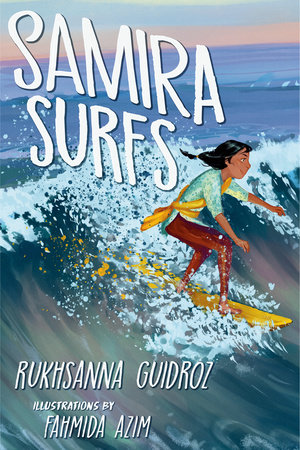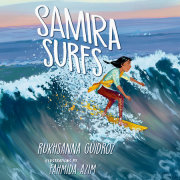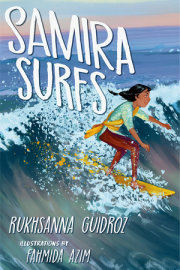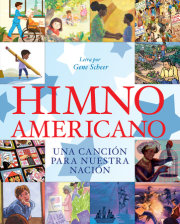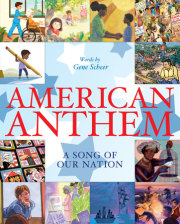Cox’s Bazar, Bangladesh
January 2012
Inside Our House
Our house, made of bamboo
chopped by Baba’s bare hands,
sits on a hill with other houses
just like ours.
The roof is crinkly blue plastic,
noisy in the wind,
hot in the afternoon sun.
Rain drips through its holes,
making dirt puddles
on the ground.
Inside, we have a single room
for the four of us.
Mama and Baba’s sleeping mat
covers one corner.
Close by, Mama’s silver pot
and Baba’s old spit cup,
stained red from his betel leaf.
Khaled stores a cricket bat
in his corner.
Next to it, on the floor, is
my brother’s blue notebook.
He tucked it in the waistband
of his longyi
and brought it all the way from
Burma.
What’s mine is a stool that holds
my special blanket,
Nani’s gift to baby me.
It’s torn and frayed,
but when I brush it against my skin
on cool winter nights,
me and Nani are together again,
cheek to cheek.
My stomach twists
when I think about
what little
made it here with us.
But things don’t make a home.
Family does,
even those still in Burma.
Nani and Nana do,
even though they are gone.
Eggs
Our eggs go plop-plop into water,
bubble and mist as they simmer
in Mama’s silver pot.
When they’re ready,
she spoons them out
and sets them in my bucket.
Our livelihood lies between
these brittle white shells.
My job is to sell
as many hard-boiled eggs as I can
to beachgoers
in Cox’s Bazar.
Each oval brings
money to my palm
and food
to the bellies
in my family.
Salt
Last night, Baba said,
“If you sell all your eggs, Samira,
we can buy extra salt to keep.”
He was squatting on the floor,
wrapping coconut, fennel, and nuts in betel leaf.
It’s his favorite treat.
A spiral of joy rose in my belly.
Salt crystals transform Mama’s dahl.
Beneath my crossed legs,
the prickly straw mat
suddenly felt smooth.
A bucket of eggs
turns into bundles of taka
turns into pinches of salt
turns into mouthfuls of joy.
I send out a wish
to sell all my eggs.
Come extra hungry to the beach, tourists!
Scoot Low
Every morning,
a narrow milky stream
of drip-drop pouring cha
tumbles from high
to greet me.
This is how Mama pours it.
Moments with her at dawn
bathe our day in sweetness.
Baba is the first to leave.
Shrimping is early work.
Next, Khaled,
to clean dishes and tables
for the café at Seaview Hotel.
Mama kisses me on the cheek.
“Stay safe, Samira,” she says.
I’m the last to go.
Low, low I scoot,
zigzagging
down our sneaky steep hill.
My walk is filled with
sky, wrapped in pearly indigo
air, crisp and still,
and birds chirping
every morning.
Knowing
I step past the woods
to meet a wide stretch
of golden-gray sand.
The beach goes beyond where I can see.
Khaled says it’s the longest in the world!
Café doors creak open.
Outside, whining
packs of stray dogs
beg for food,
waiting for scraps
that miss the rubbish.
Fishermen throw out nets
for their daily catch.
The sea, sparkly in the morning sun,
breaks in little waves near the shore.
My eyes follow their slow, gentle peeling.
My ears tune in the gentle roar
of water tumbling on sand.
It sounds like water lapping at a boat,
like the one we boarded to cross the river
when we left Burma,
just me, Khaled, Mama, and Baba,
and Nani and Nana.
The others stayed behind:
Hasina Auntie, Jamal Uncle,
my cousin Shoba,
and my best friend, Sahara.
It’s been three months
since the river tossed our boat,
our chests sinking, stomachs plummeting.
Water can be dangerous
and beautiful at the same time.
For now, I stay as far away
as I can.
Copyright © 2021 by Rukhsanna Guidroz. All rights reserved. No part of this excerpt may be reproduced or reprinted without permission in writing from the publisher.

